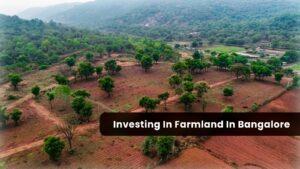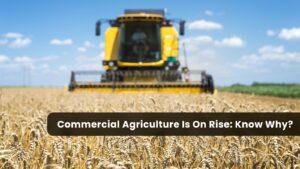Small-scale farming has been the backbone of agriculture for millennia, providing crucial food and resources for local populations. Although these farmers are essential to the production of sustainable food, they confront particular difficulties that may limit their development and output. Despite these difficulties, small-scale farming offers a variety of chances for innovation, societal advancement, and environmental protection. We will examine the various challenges and opportunities that small-scale farmers confront in this blog, as well as how they might prosper in a world that is constantly changing.
Challenges
Limited Access to Resources: It can be difficult for small-scale farmers to obtain essential resources including land, water, money, and contemporary farming methods. Their capacity to grow and adopt efficient farming methods might be severely constrained by high land prices, insufficient finance facilities, and a lack of technical skills.
Market Access and Price Variations: For small-scale farmers, getting their produce to market can be a significant issue. They might encounter transportation issues, a lack of market knowledge, and fierce rivalry from more powerful agricultural firms. Price changes may also have an impact on their earnings and stability.
Climate Change and Environmental Risks: Small-scale farmers are particularly susceptible to the effects of climate change, including extreme weather conditions, droughts, floods, and pests. These environmental dangers have the potential to ruin crops, endanger livelihoods, and jeopardize the long-term viability of their farming methods.
Labour Shortages: Many small-scale farmers rely on manual labor, but it can be challenging to locate skilled and reasonably priced laborers, particularly in areas where there is a rural-to-urban movement.
Adoption of Technology: For small-scale farmers, implementing contemporary agricultural technologies can be expensive. Their capacity to profit from technological improvements in the industry may also be hampered by a lack of training and experience in the use of new tools and processes.
Opportunities
Niche and Organic Farming: Organic farming and specialized markets are two options available to small-scale farmers. They can attract environmentally concerned customers willing to pay more for high-quality items by growing specialized crops or organic produce.
Direct marketing and Community Support: It might be beneficial to establish solid ties with the neighborhood’s residents and customers. Direct marketing is made possible through farmers’ markets, community-supported agriculture (CSA), and farm-to-table programmes, which help farmers get paid more fairly and build a following of devoted customers.
Agroforestry and Diversification: Small-scale farmers can use intercropping, varied farming methods, and agroforestry techniques. This has the potential to raise productivity while simultaneously enhancing soil health, boosting climate change resilience, and generating various streams of revenue.
Sustainable Agriculture: Small-scale farmers have the potential to lead the way. Crop rotation, water conservation, integrated pest management, and the use of organic fertilizers are some techniques that can increase productivity while reducing negative environmental effects.
Access to Market Information: Small-scale farmers now have easier access to market data thanks to the development of digital technology and mobile applications, which can help them make better decisions and identify more lucrative sales channels.
Conclusion
Small-scale farmers have a lot of potential to succeed and contribute to an agricultural industry that is more sustainable and equitable, despite the difficulties they encounter. Small-scale farmers may overcome obstacles and play a crucial part in supplying the world’s expanding demand for food while protecting the environment by making use of their agility, solid community ties, and potential for specialized markets. By providing targeted aid, promoting fair trade, and raising public knowledge of the value of sustainable agriculture, policymakers, agricultural organizations, and consumers may all contribute to the support of small-scale farming. We can create a future where small-scale farmers prosper and continue to play a crucial role in feeding the globe by working together.



